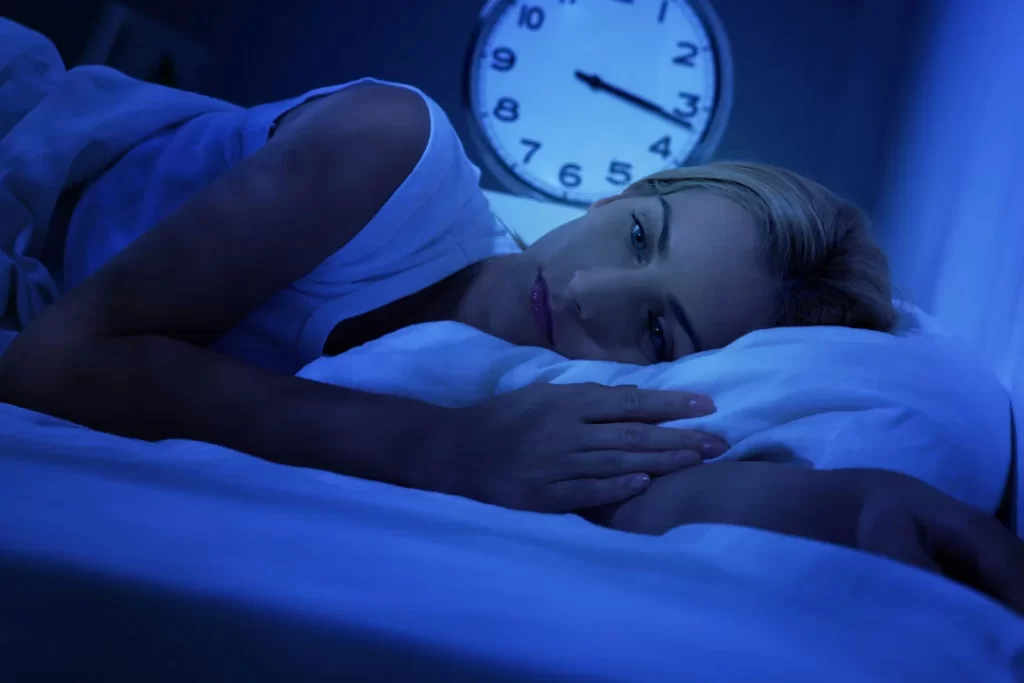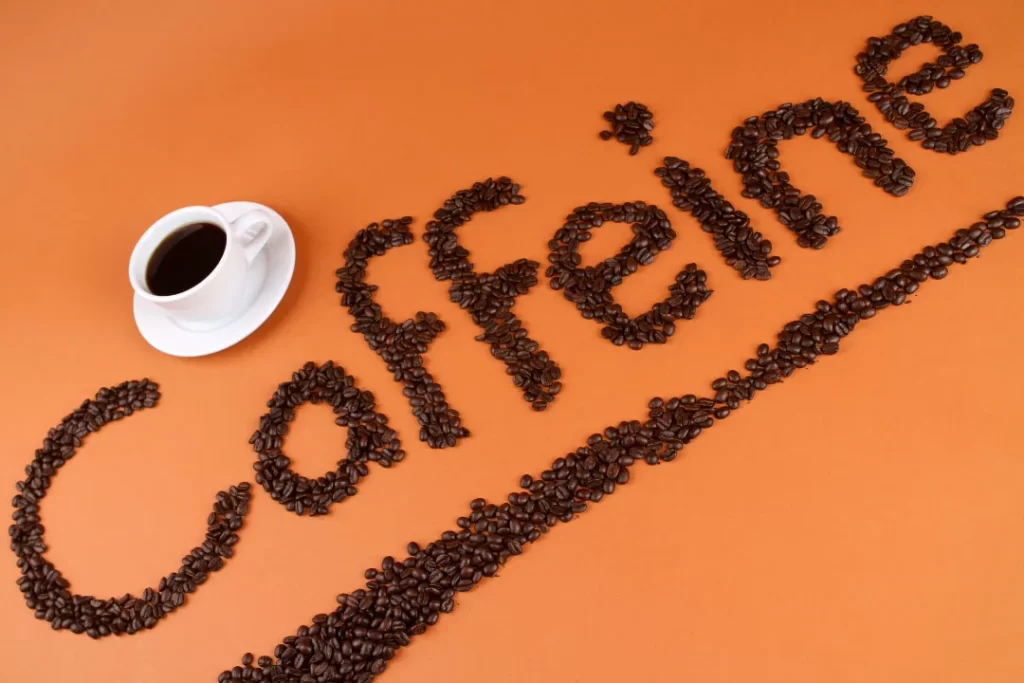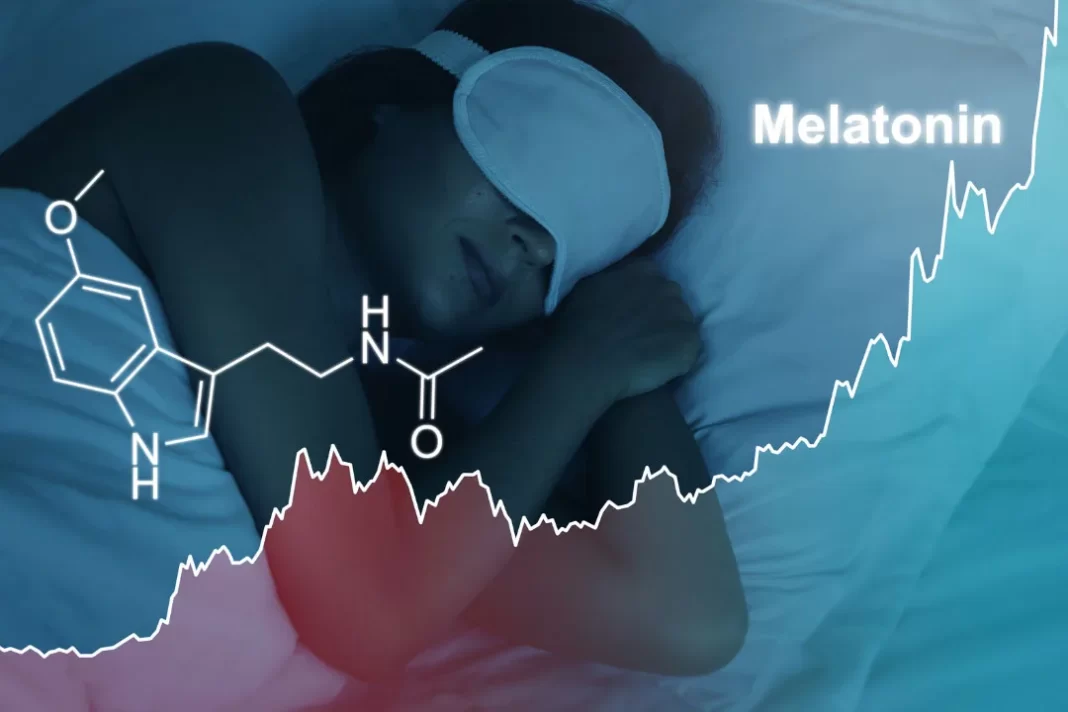There are many sleep aids in the supplement marketplace, and two popular active ingredients are valerian root and melatonin. In this article, we discuss valerian root vs melatonin in terms of effectiveness and safety.
A majority of Americans have trouble getting to sleep. According to the American Sleep Apnea Association, 70% of adults report that they get insufficient sleep at least one night a month, and 11% report poor sleep every night. It is estimated that 50 to 70 million Americans suffer from sleep-related issues regardless of age, gender, or socioeconomic background. Not getting enough quality sleep can affect vigilance, reaction times, learning abilities, alertness, mood, hand-eye coordination, and short-term memory. Furthermore, excessive sleepiness can cause job accidents and car crashes. We spend a third of our lives sleeping, so sleep issues are no small concern.
There are many methods for treating sleep problems, including supplements that you can get over the counter. Two popular ingredients in these supplements are melatonin and valerian root. But which is better, and which is better for you?
You May Also Like:
5 Best Non-Prescription Alternatives to Benzodiazepines for Anxiety
A Melatonin Overdose Is Extremely Dangerous: Safer Supplementation For Relaxation And Sleep
Valerian root vs melatonin: the pros and cons of melatonin
When we think of supplements, we think about introducing something new into our bodies; however, your body actually produces melatonin naturally. Melatonin is a hormone that is produced by your brain’s pineal gland, which regulates your body’s internal clock. It’s what lets your body know when to go to bed and when to wake up in the morning. Supplementation with melatonin can be useful when the sleep cycle is disrupted by late-night shifts or jetlag from traveling.
Side effects of melatonin are mild but can include nausea, headaches, sleepiness, and dizziness. In children, melatonin can also cause agitation and an increase in bed wetting.
If the problem is not sleep-cycle related and you’re having trouble relaxing and winding down before bed, then valerian root may be the better option.

Valerian root vs melatonin: the pros and cons of valerian root
While melatonin is a naturally occurring hormone, valerian root is an herbal supplement that has been taken for thousands of years to help with sleep.
Valerian works by affecting the body’s sleep drive. The human body is always trying to maintain homeostasis or a state of stability. For example, the body always aims to maintain a core body temperature of around 98.6 degrees Fahrenheit. Other homeostatic processes in the body involve the maintenance of stability with regard to fluids, oxygen levels, blood sugar, and blood pressure.
Sleep drive is one of these processes. The body works constantly to maintain a balance between sleep and wakefulness by promoting alertness after sleep and by gradually increasing sleep drive while you’re awake. Both wake and sleep-promoting hormones and neurochemicals rise and fall throughout the day, working to elevate or lower our drive for sleep. Valerian root affects our sleep drive by increasing levels of calming neurotransmitters in the brain.
One of these neurotransmitters is GABA, which is critical for getting a good night’s rest. GABA is responsible for regulating your brain’s nerve impulses, and low GABA activity is linked to insomnia and disrupted sleep. Valerian root appears to stop the brain from breaking down GABA, allowing you to feel more relaxed and fall asleep faster.
Valerian root is generally considered safe but some adverse side effects have been observed such as fatigue, nausea, headaches, dizziness, and vomiting.

Valerian root vs melatonin: Which is better?
The answer to the question of which is better when comparing valerian root vs melatonin can be confusing, as one is an herbal supplement and the other is a hormone. However, in terms of falling asleep in the first place (which can be one of the biggest problems), valerian root may be your best bet. When we’re feeling anxious, getting to sleep can be difficult; besides optimizing the sleep drive, valerian is known to reduce anxiety.
There are many sleep aids available over the counter that contain valerian root, and it’s best to look for a product that contains multiple components that work in tandem with this ingredient. Our top choice is myPEAK’s DeltaSleep, which contains other herbal ingredients like chamomile and passionflower. DeltaSleep’s formula works to induce calm, reduce stress, and relax muscles (all precursors to getting to sleep and staying asleep). DeltaSleep’s combination of formulation ingredients act synergistically to induce and support natural sleep, and a natural sleep pattern without any discomforting side effects. If you are thinking about using a supplement (and avoiding the side effects and dangers of melatonin and prescription drugs), myPEAK’s DeltaSleep is probably an excellent choice for you.
In addition to supplements, there are a variety of methods that can be used to help you get quality sleep. Among the best include going to bed at the same time each night, getting more exercise during the day, and sleeping in a dark, quiet, and cool place. It is also best to avoid eating large meals and consuming alcohol and caffeine before bed. Limit time spent in front of screens like your smartphone, computer, or TV as the blue light emission will make it difficult to sleep.
As with most things health-related, it is never a bad idea to consult with a doctor to determine the best course of action for you. Valerian root vs melatonin doesn’t need to be a decision you lose sleep over.

Further Reading:
Body and Soul: Everything you need to know about melatonin
Medical News Today: Does valerian root treat anxiety and insomnia?
CNET: Want to Be Happier? Get More Sleep. 6 Ways Your Sleep Influences Mental Health
Important Note: The information contained in this article is for general informational purposes only, and should not be construed as health or medical advice, nor is it intended to diagnose, prevent, treat, or cure any disease or health condition. Before embarking on any diet, fitness regimen, or program of nutritional supplementation, it is advisable to consult your healthcare professional in order to determine its safety and probable efficacy in terms of your individual state of health.
Regarding Nutritional Supplements Or Other Non-Prescription Health Products: If any nutritional supplements or other non-prescription health products are mentioned in the foregoing article, any claims or statements made about them have not been evaluated by the U.S. Food and Drug Administration, and such nutritional supplements or other health products are not intended to diagnose, treat, cure, or prevent any disease.



